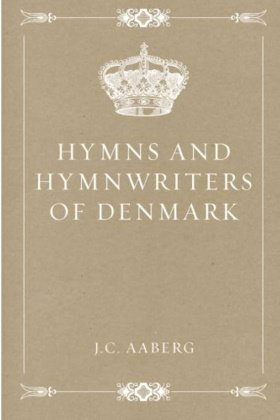That pleads with Thee for life and breath.
O Holy Spirit, guide me!
With wisdom true provide me;
Help me my cross to bear.
Uphold me in my calling
And, when the night is falling,
Grant me Thy heavenly home to share.
Most widely known of all Sthen’s hymns is his beloved “Lord Jesus Christ, My
Savior Blest”. In its unabbreviated form this hymn contains eight stanzas of which the initial letters spell the words: “Hans Anno”; and it has become known
therefore as “Sthen’s Name Hymn”. The method of thus affixing one’s name to a
song was frequently practiced by authors for the purpose of impressing people with their erudition. The meek and anxious spirit that pervades this hymn makes
it unlikely, however, that Sthen would have employed his undoubted skill as a poet for such a purpose. The hymn is thought to have been written at Malmø at
the time its author encountered his most severe trials there. And its intimate personal note makes it likely that he thus ineradicably affixed his name to his hymn in order to indicate its connection with his own faith and experience.
“Sthen’s Name Hymn” thus should be placed among the numerous great hymns
of the church that have been born out of the sorrows and travails of their authors’
believing but anxious hearts. The translation given below is from the abbreviated
text now used in all Danish hymnals.
Lord Jesus Christ,
My Savior blest,
My refuge and salvation,
I trust in Thee,
Abide with me,
Thy word shall be
My shield and consolation.
I will confide,
Whate’er betide,
In Thy compassion tender.
When grief and stress
My heart oppress,
Thou wilt redress
And constant solace render.
When grief befalls
And woe appalls
Thy loving care enfolds me.
I have no fear
When Thou art near,
My Savior dear;
Thy saving hand upholds me.
Lord, I will be
Alway with Thee

























